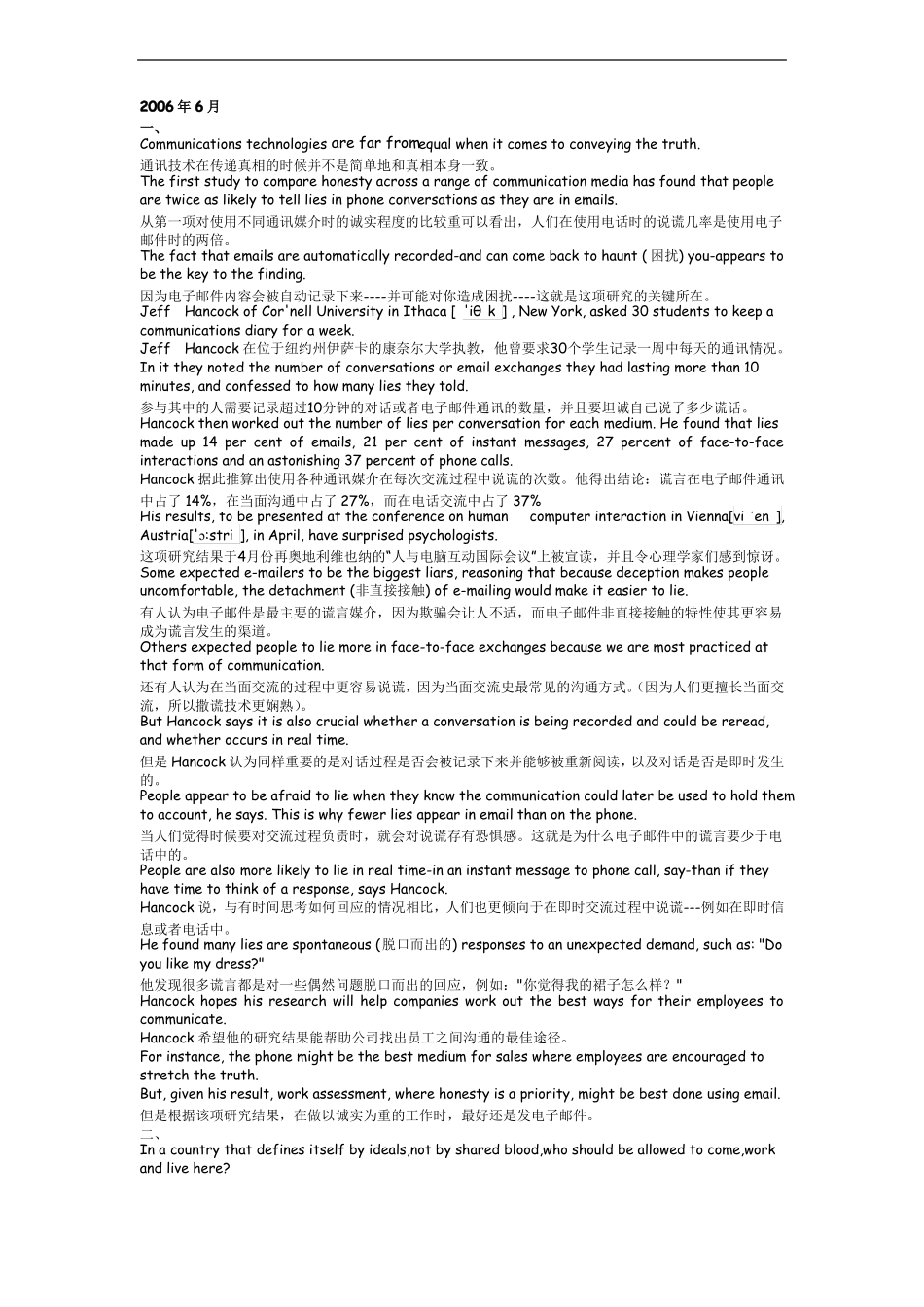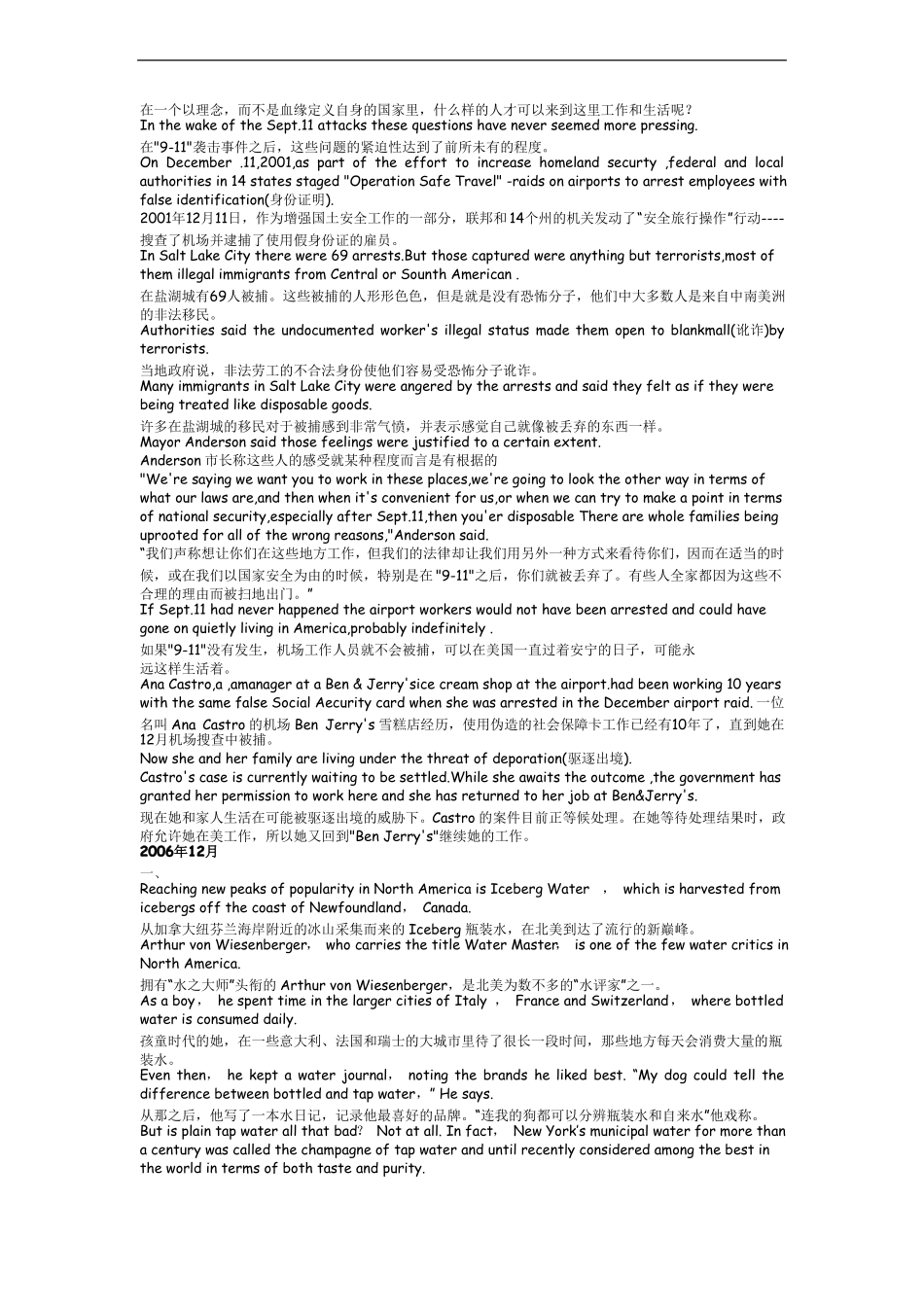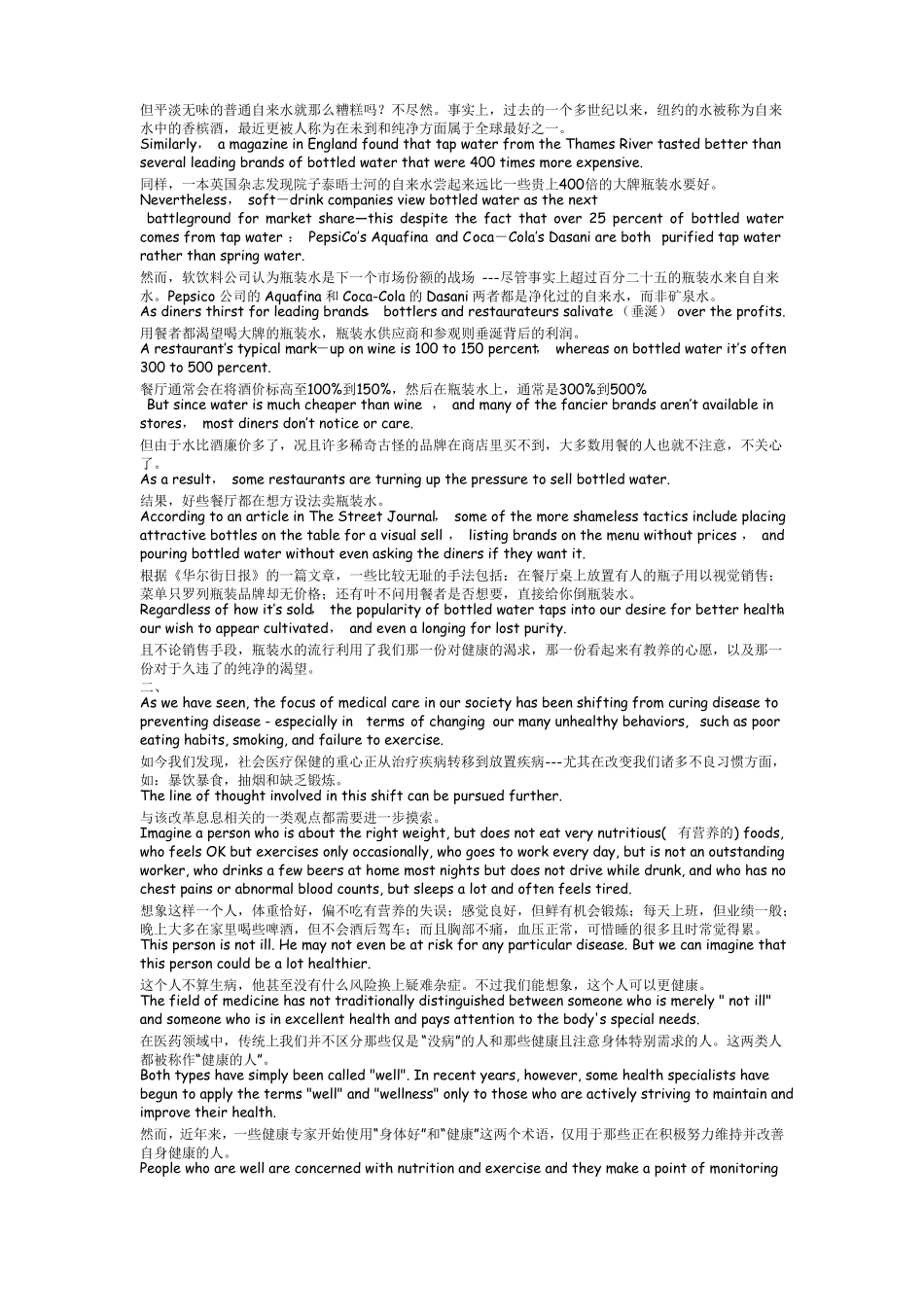2006 年 6 月一、Communications technologies are far from equal when it comes to conveying the truth.通讯技术在传递真相的时候并不是简单地和真相本身一致。The first study to compare honesty across a range of communication media has found that peopleare twice as likely to tell lies in phone conversations as they are in emails.从第一项对使用不同通讯媒介时的诚实程度的比较重可以看出,人们在使用电话时的说谎几率是使用电子邮件时的两倍。The fact that emails are automatically recorded-and can come back to haunt ( 困扰) you-appears tobe the key to the finding.因为电子邮件内容会被自动记录下来----并可能对你造成困扰----这就是这项研究的关键所在。JeffHancock of Cor'nell University in Ithaca [ 'iθ k ] , New York, asked 30 students to keep acommunications diary for a week.JeffHancock 在位于纽约州伊萨卡的康奈尔大学执教,他曾要求30个学生记录一周中每天的通讯情况。In it they noted the number of conversations or email exchanges they had lasting more than 10minutes, and confessed to how many lies they told.参与其中的人需要记录超过10分钟的对话或者电子邮件通讯的数量,并且要坦诚自己说了多少谎话。Hancock then worked out the number of lies per conversation for each medium. He found that liesmade up 14 per cent of emails, 21 per cent of instant messages, 27 percent of face-to-faceinteractions and an astonishing 37 percent of phone calls.Hancock 据此推算出使用各种通讯媒介在每次交流过程中说谎的次数。他得出结论:谎言在电子邮件通讯中占了 14%,在当面沟通中占了 27%,而在电话交流中占了 37%His results, to be presented at the conference on humancomputer interaction in Vienna[vi ˈen ],Austria['ɔ:stri ], in April, have surprised psychologists.这项研究结果于4月份再奥地利维也纳的“人与电脑互动国际会议”上被宣读,并且令心理学家们感到惊讶。Some expected e-mailers to be the biggest liars, reasoning that because deception ma...


